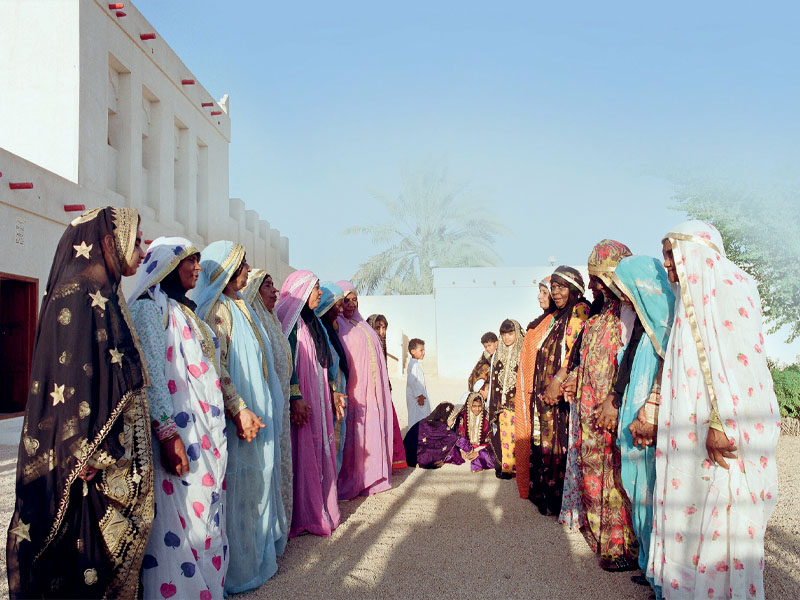FEMALE FOLK BANDS IN BAHRAIN
Issue 21

Tribes define the framework in which their members can celebrate and express happiness, so arts in general are restricted to stereotyped performances. Although the members of a given tribe celebrate and perform rituals, in most cases these rituals do not satisfy the human need to express joy and to transcend the constraints and worries of daily life.

Both men and women have a strong desire to sing, dance, and express their emotions with odes that celebrate beauty, freedom, nature and love in communities that impose strict customs and traditions to prevent lovers from meeting. A tribal community has a lot to celebrate; there are always weddings, feasts, circumcision ceremonies, and oaths, so there has always been a need for singers, dancers and artists. Folk bands do all of this by writing, singing, playing music and dancing at weddings and other occasions. Bands of women of mixed origin began to play an important role in celebrations and to deliver richer performances than the Ardah or Maradah traditional dances performed by men, or by both men and women. Women became involved in the performing arts because:
1. There are no clear tribal rules that prevent women of mixed origin from singing and dancing.
2. Women of mixed origin often inherit African musical and singing talents.
3. In general, women are always available at celebrations when brides are being prepared for their weddings.
Each female band consists of around 20 members aged between 30 and 60; their roles depend on their experience and their age. Usually but not always, the leader is the oldest and most knowledgeable and experienced band member; other band members choose someone to replace the leader if she is ill or absent. Some members, known as chairs, are appointed to serve as advisors to the leader and her deputy. A member is called ‘Ja’idah’, which means ‘committed to the band’. The band meets at the leader’s house, and she caters for them and offers them hospitality. ‘Qlatah’ or a symbolic amount of money is deducted from the total fee that the band earns for the wedding. Qlatah is supposed to cover the catering expenses, and the cost of purchasing and maintaining musical instruments.
The leader negotiates with people and makes verbal contracts for weddings. Either the band members choose the leader or, if the outgoing leader has a nice voice and good experience, she may appoint one of her similarly talented siblings.
Female bands perform at weddings, feasts, the fulfillment of oaths, and circumcisions. During weddings, the band performs during the henna ceremony, the night before the wedding, the morning of the wedding day and when the bride leaves her family’s house for the house of her husband’s parents.
Khalid Khalifa
Bahrain



































































